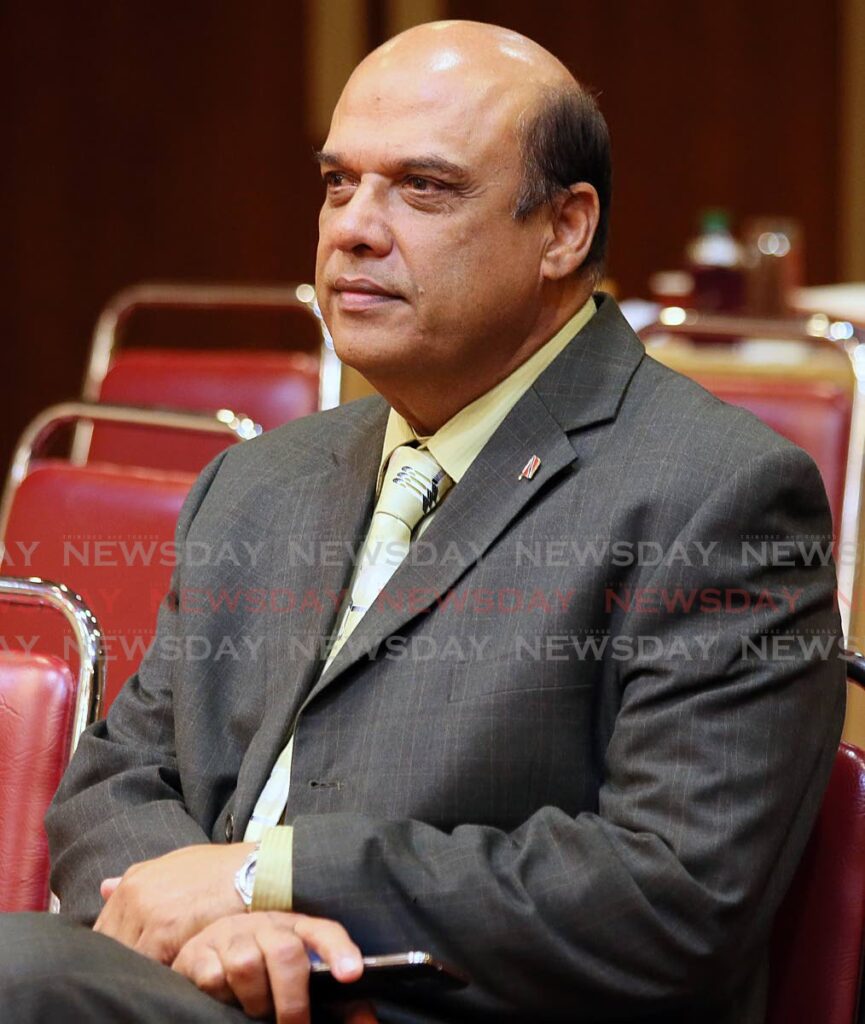Karim left distinctive mark on education

DR VASHTI SINGH
IN RETHINKING political leadership for the 21st century, few individuals emerge whose contributions transcend time, leaving a unique and distinctive mark on education for national and regional development. One such luminary was the late Fazal Karim, a beacon of political will, intelligence and mentoring with genuine concern to improve tertiary education access and quality in Trinidad and Tobago and the wider Caribbean.
Karim served as general secretary of the United National Congress from 2000 to 2010 under the guidance of the late Basdeo Panday, then opposition leader. Under the People’s Partnership government (2010-2015), Karim was appointed a senator and minister for pioneering change in the Ministry of Tertiary Education and Skills Training.
At the regional level, he spearheaded the Caribbean Vocational Qualification (CVQ) through the Caribbean Examination Council (CXC) and workforce assessment centres to certify skilled citizens towards licensing within the national qualifications framework. This was Karim’s foundational work to ensure education as a basic right for disadvantaged youths to help them rise out of poverty and transition from precarious livelihoods to formal employment and decent jobs.
As minister Karim significantly revolutionised the education sector of TT into a seamless system through the integration of tertiary education, technical and vocational training and lifelong learning. His goal was diverse pathways within and across the vocational and academic tracks aligned with pedagogical reform and research to inform policy for equality of access and quality assurance.
Karim assured citizens that Government Assisted Tertiary Education (GATE) would continue to be secured and expanded, inclusive of technical and skills training. This provision was meant to empower youth with specialised knowledge and practical skills for life in building a talented workforce.
Karim’s transformative impact as minister resides in the evolution of the tertiary education and skills training expansion programme for opening as many as nine new projects, including the UTT Aviation Campus in Camden, Couva. On September 2, 2015, hundreds of individuals including educators and students lined the airstrip at Camden to witness a 727 Boeing jet land at 9.16 am for the launch of the campus.
Twenty-five students (20 males and five females) from communities across TT gained admission to the UTT’s Certificate in Aviation Technology programme. Minister Karim stated: “For many years, education and training was available to a privileged few. Today we level the platform for citizens keen on pursuing a career in aviation. Your present position is not your final destination” (https://utt.edu.tt).
The UTT Aviation Institute, the first of its kind in the region, was intended to position TT as a regional leader in the aviation industry. Karim believed that the institute would become a centre of excellence in the entire Caribbean as well as Latin America. He said, “By 2026, 480,000 new technicians would be needed to maintain those aircraft and over 350,000 pilots would be needed to fly them” (https://unctt.org).
Karim was always a thinker ahead of time. From his perspective, TT, as a developing nation, must assume responsibility and accountability for relevant tertiary education in terms of youth knowledge and skills and the future of the job market.
As UNC opposition Member of Parliament for Chaguanas East (2015 and 2020), Karim greatly influenced an educated workforce as key to a nation’s development. He often imparted informal education, motivating unemployed youth and their families of Chaguanas East to consider tertiary qualifications in areas of vocational interest. This he did in the marketplace, recreation grounds, schools, temples, mosques and churches.
Even after Karim was no longer within the walls of Parliament, his voice for the upliftment of people through tertiary education was heard, for instance: GATE downsizing linked to a “precipitous fall” in tertiary education enrolment (Guardian, November 20, 2022).
Karim’s compassion knew no boundaries – to provide equal opportunities for access to quality tertiary education for all youth in TT, regardless of their ethnicity, race, gender or socio-economic status. His was a desire to lift at-risk youths out of poverty and save the vulnerable from turning to a life of crime. If there is a time for such a vision to manifest into urgent and committed action in our country, it is now, due to the upsurge in school violence, murders and criminal activities.
The funeral service and ceremonies for Karim took place on January 23 at the Greater Love Church in Couva, then at the Carapichaima masjid. His final journey stands as a testament to his belief in the need for greater love, peace among mankind, unity, and what makes for great political leadership to advance tertiary education and training for all.
Karim’s innovative words, “from cutting cane to flying plane,” at the launch of the UTT Aviation Campus will always inspire the young from nursery to tertiary education – to be what they know they can be and ascend to greater heights for a strong nation and regional development. A fitting tribute to honour Karim’s true inspiration is the completion and opening of the Fazal Karim Regional Airport at Camden, Couva.
Tertiary education and training is the greatest legacy for our nation as encapsulated in the following words of minister Fazal Karim (October 12, 2011):
“Ladies and gentlemen, the time has come for us to take our place as a leader in this region and the world in the fields of education and training. We are a nation burgeoning with talent, and populated with brilliant scholars and talented artists. We are a nation on a steady course defined by productivity and we boast an educational system that is becoming increasingly seamless in the articulation of our students from nursery right through to tertiary.”
May the faithful departed rest in peace.
Dr Vashti Singh is a senior lecturer (sociology of education) and Head of the Department of Research and Graduate Studies in the Faculty of Education and Humanities at the University of Guyana


Comments
"Karim left distinctive mark on education"